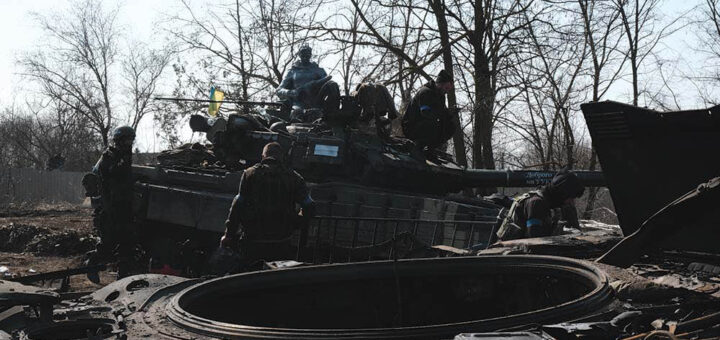Russia escalates war with forced votes, nuclear threats, more soldiers

Keoputhy Bunny, Features Editor
After more than 200 days of war, the conflict in Ukraine has once again seemed to reach a boiling point. A referendum vote was held in four Russian-held territories of Ukraine but were internationally denounced by both Ukraine and their allies, citing that the ballots were not secret and voters were being held at gunpoint. Russian President Vladimir Putin has also mobilized 300,000 troops and reignited the threat of nuclear war against the North Atlantic Treaty Organization (NATO).
The world seems to have forgotten the shock and horror of the Ukraine war. With the death of the queen, hurricanes and satellites slamming into asteroids, a war on another continent feels very far away. But the realities of conflict are still haunting both Ukraine and Russia.
How does this affect Canadians though? With Russia intensifying its recruitment efforts and threat of nuclear war, the world should be wary of its reach across the globe.
Ukraine and its Western allies are calling the referendums held in Russian occupied territories of Kherson, Zaporizhzhia, Donetsk and Luhansk. The results, which were not reviewed by an independent party, concluded that a whopping 99 per cent of Donetsk voters opted to join Russia. Authorities said 98 per cent of Luhansk voted ‘yes’, while Zaporizhzia and Kherson voted ‘yes’ with 93 per cent and 87 per cent respectively. The four territories contributed to about 15 per cent of Ukrainian land.
Galina Luhova, head of Kherson City Military Administration, also asserts that the votes are forced.
“The referendum is taking place in the occupied city of Kherson under the muzzle of an automatic rifle,” Luhova said after escaping to a Ukraine-occupied safe zone.
These results are also disputed internationally with reports from Ukrainian and Western officials saying the referendums were not only held illegally but held at gunpoint. German Foreign Minister Annalena Baerbock also agreed that the vote was unjust.
“This is the opposite of a free and fair election. And this is the opposite of peace. It is a dictated peace.” Baerbock stated during her speech at the 2022 Berlin Peace Dialogue conference.
Despite outrage from the international community, Putin still decided to mobilize his soldiers from the Russian reserves. A wave of backlash met the leader, with protests erupting all over the country and even recruiters being shot at, it seems Putin’s support is crumbling by the week.
With that being said though, Russia still has a sizable advantage from a purely militaristic standpoint.
According to the Heritage Foundation’s Peter Brookes, Russia’s arsenal, at least in terms of small nukes, is substantially larger than that of NATO.
“Russia has nearly a 10:1 advantage over the United States and NATO in non-strategic (i.e., low-yield and short-range) nuclear weapons,” Brookes states.
These nukes are used to clear small areas without the radioactive fallouts of bigger nuclear weapons. They can be launched using aircrafts or battleships but so far, no countries have launched one yet. After all, a nuke is a nuke and using one may incur the wrath of other global nuclear superpowers.
The annexation, recruitment and re-emergence of nuclear threats mark a large escalation in the war but it seems like the international community is still holding its breath to see if these moves will make or break the future of Putin’s Russia.





